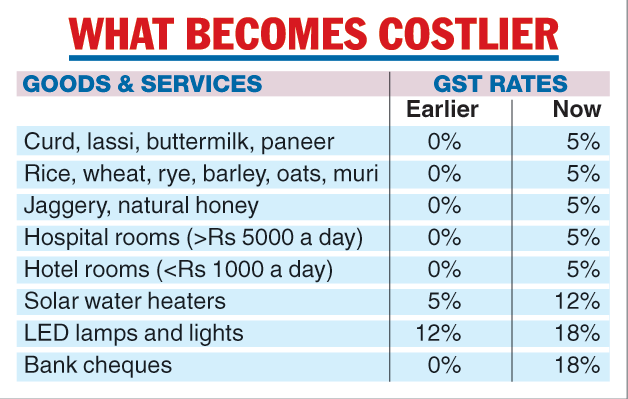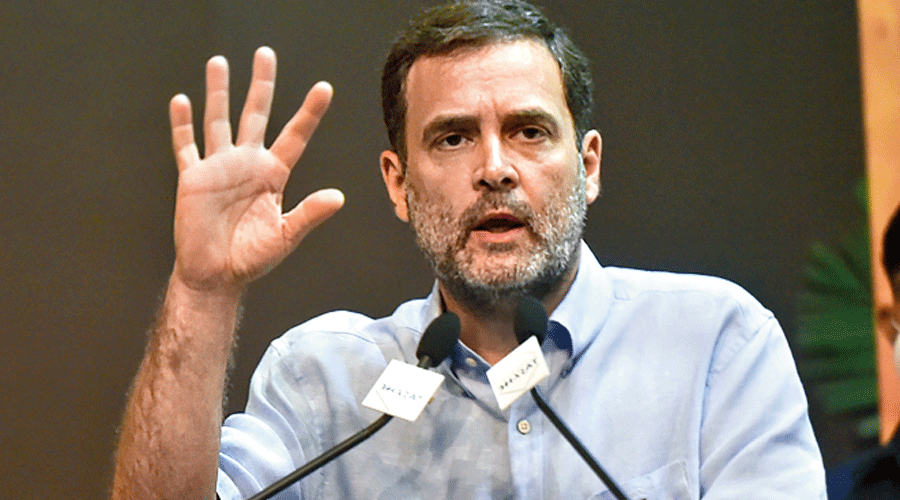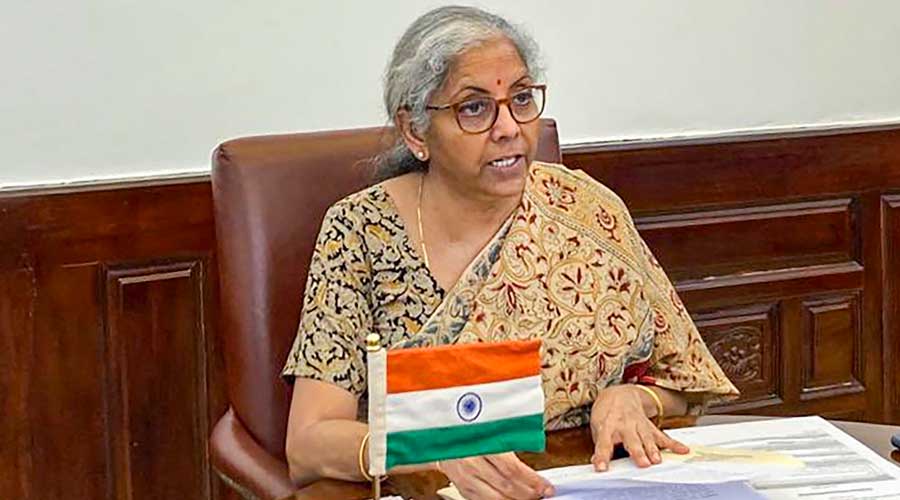Traders and shopkeepers will hold a nationwide protest next week against a hike in taxes on a range of products, including food grains and household items, and services that kicked in from Monday.
“The 5 per cent goods and services tax on a range of food products and the increase in the rates on other household items has magnified the inflation burden on the public and traders,” said Pravin Khandelwal, president of the Confederation of All India Traders (CAIT), which represents more than 10 million small shopkeepers and wholesalers.
Items of everyday consumption like curd, lassi and puffed rice (muri) will now attract GST at the rate of 5 per cent when “pre-packaged and labelled”.
The Centre tried to appease the irate traders by clarifying that commodities and food items such as pulses, cereals, rice, wheat or flour in a single package containing a quantity of more than 25kg or 25 litres would not fall in the category of “pre-packaged and labelled commodity”. But the relaxation failed to mollify small traders and shopkeepers who have always been seen as a key support base for the Modi regime.

Khandelwal said CAIT members would launch a nationwide series of protest meetings on July 26, starting from Bhopal.
The Congress was quick to seize the opportunity to again dub the tax as the Gabbar Singh Tax — a moniker characterised by the villainy of the popular bandit in the movie Sholay.
“PM Modi’s Gabbar Singh Tax is the best example of his modus operandi — talk big, and when it’s time to act, make things worse,” the Congress tweeted on Monday.
The tax revision came after the Goods and Services Tax Council — made up of state and federal ministers — decided at a meeting last month to correct an inverted duty structure arising from a situation where the rate of tax on inputs purchased is higher than the rate of tax on outward supplies.
“High taxes, no jobs. BJP’s masterclass on how to destroy what was once one of the world’s fastest-growing economies,” Congress leader Rahul Gandhi tweeted.
“This decision, taken amid record-breaking unemployment, will put more financial burden on the middle-class families, especially struggling youngsters living in rented houses. We are hurting them at a time when they needed relief,” BJP MP and Rahul’s cousin Varun Gandhi said in a tweet.
Analysts said the hike in the GST tax rate from zero to 5 per cent on basis food commodities would add to the inflationary pressures in the economy and hit the poor who have been bearing the brunt of rising prices.
Retail inflation in June came in at 7.01 per cent — way above the Reserve Bank of India’s tolerance limit of 6 per cent.
Wholesale price inflation, the alternative gauge measuring the impact of the price rise on businesses, has been hovering close to a three-decade high at 15.2 per cent during the same period.
The RBI has tried to tamp down on inflation by raising interest rates. But its efforts have been undermined by the government’s move to raise duties and taxes on the import and export of several commodities.
Last week, the Centre had notified that from July 18, unbranded pre-packed and labelled food items would attract 5 per cent GST. So far, only branded items used to attract the levy.
Late on Sunday night, the Central Board of Indirect Taxes and Customs issued an FAQ clarifying that only pre-packed items up to 25kg would attract 5 per cent GST. If a retail shopkeeper buys an item from a manufacturer or a distributor in a 25kg pack and then distributes it in smaller packs, it will not attract the GST.
According to the FAQ, pre-packaged and labelled food items (such as pulses and cereals like rice, wheat, flour, etc) would fall within the purview of the definition of “pre-packaged commodity” under the Legal Metrology Act, 2009, if such packages contain a quantity up to 25kg (or 25 litres).
The board said that GST would apply on a package that contains multiple retail packages, for example, a package containing 10 retail packs of flour of 10kg each.
However, an individual package of rice containing 50kg would not be considered a pre-packaged and labelled commodity for the purposes of GST levy, it added.
Abhishek Jain, tax partner at KPMG, said the revision in the rates would widen the GST net.
AMRG & Associates Senior Partner Rajat Mohan said this new levy was expected to stoke inflation of staple foods like rice and cereals.
The Modi regime has been accused of introducing the GST tax regime in a hurry in 2017, replacing about 20 federal and state taxes, aiming to unify the $3-trillion economy and 1.4 billion people into a single market. Small traders and businesses have been wrestling with a minefield of changes in rates and procedures over the past five years to claim input tax credits.
House furore
The winter session of Parliament started on Monday with both Houses witnessing uproar over the price rise in recent months. Both the Rajya Sabha and the Lok Sabha were adjourned for the day without transacting any significant business after Congress members tried to raise the price rise issue. New members were administered the oath, and obituary references were read out.












